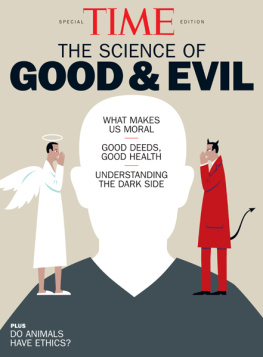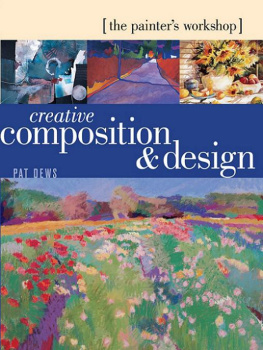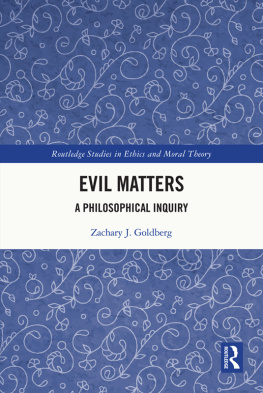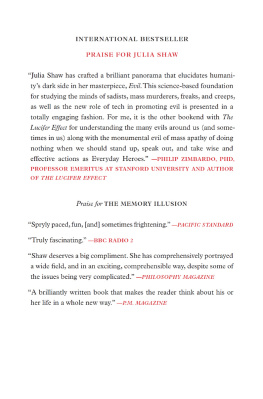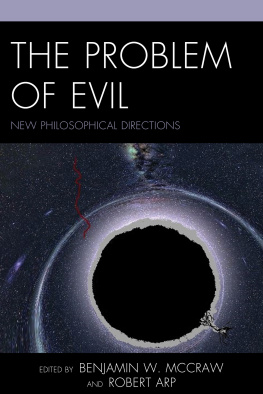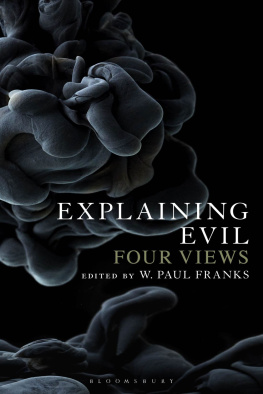
This paperback edition first published 2013
2013 Peter Dews
Edition history: Blackwell Publishing Ltd (hardback, 2008)
Blackwell Publishing was acquired by John Wiley & Sons in February 2007. Blackwells publishing program has been merged with Wileys global Scientific, Technical, and Medical business to form Wiley-Blackwell.
Registered Office
John Wiley & Sons Ltd, The Atrium, Southern Gate, Chichester, West Sussex, PO19 8SQ, United Kingdom
Editorial Offices
350 Main Street, Malden, MA 02148-5020, USA
9600 Garsington Road, Oxford, OX4 2DQ, UK
The Atrium, Southern Gate, Chichester, West Sussex, PO19 8SQ, UK
For details of our global editorial offices, for customer services, and for information about how to apply for permission to reuse the copyright material in this book please see our website at www.wiley.com/wiley-blackwell.
The right of Peter Dews to be identified as the authors of the editorial material in this work has been asserted in accordance with the UK Copyright, Designs and Patents Act 1988.
All rights reserved. No part of this publication may be reproduced, stored in a retrieval system, or transmitted, in any form or by any means, electronic, mechanical, photocopying, recording or otherwise, except as permitted by the UK Copyright, Designs and Patents Act 1988, without the prior permission of the publisher.
Wiley also publishes its books in a variety of electronic formats. Some content that appears in print may not be available in electronic books.
Designations used by companies to distinguish their products are often claimed as trademarks. All brand names and product names used in this book are trade names, service marks, trademarks or registered trademarks of their respective owners. The publisher is not associated with any product or vendor mentioned in this book. This publication is designed to provide accurate and authoritative information in regard to the subject matter covered. It is sold on the understanding that the publisher is not engaged in rendering professional services. If professional advice or other expert assistance is required, the services of a competent professional should be sought.
Library of Congress Cataloging-in-Publication Data
The idea of evil / Peter Dews.
p. cm.
Includes bibliographical references and index.
ISBN 978-1-4051-1704-3 (hardcover : alk. paper) ISBN 978-1-1183-4630-3 (pbk. : alk. paper)
1. Good and evil. I. Title.
BJ1406.D49 2007
170dc22
2007012577
A catalogue record for this title is available from the British Library.
Cover image: Photo Simon Norfolk / Millennium Images.
Cover design by Nicki Averill Design & Illustration
List of Abbreviations
| KSA XII | Friedrich Nietzsche, Kritische Studienausgabe , volume XII, ed. Giorgio Colli and Mazzino Montinari |
| LPHI | G. W. F. Hegel, Lectures on the Philosophy of World History: Introduction , trans. H. B. Nisbet |
| LPR I | G. W. F. Hegel, Lectures on the Philosophy of Religion , volume I: Introduction and The Concept of Religion , ed. Peter C. Hodgson, trans. R. F. Brown, P. C. Hodgson, and J. M. Stewart |
| LPR II | G. W. F. Hegel, Lectures on the Philosophy of Religion , volume II: Determinate Religion , ed. Peter C. Hodgson, trans. R. F. Brown, P. C. Hodgson, and J. M. Stewart |
| LPR III | G. W. F. Hegel, Lectures on the Philosophy of Religion , volume III: The Consummate Religion , ed. Peter C. Hodgson, trans. R. F. Brown, P. C. Hodgson, and J. M. Stewart |
| PhR | G. W. F. Hegel, Philosophy of Right , trans. T. M. Knox |
| WW I | Arthur Schopenhauer, The World as Will and Representation , volume I, trans. E. J. Payne |
| WW II | Arthur Schopenhauer, The World as Will and Representation , volume II, trans. E. J. Payne |
in memory of
Franois Chtelet (192585)
and Tony Manser (192495)
for whom philosophy was custodian
of an undiminished world
Preface
As my friends and family know only too well, this book has been a long time coming. I must thank Richard Bernstein for planting the seed, by asking me to contribute to a Hannah Arendt Symposium while I was teaching at the New School for Social Research, in the autumn of 1996. The topic, Evil and Responsibility, resonated. Over time I became aware that I could use the idea of evil to access strata of our modern moral and existential orientation that often lie concealed, and to prise open significant rifts in the geology of the culture.
I would like to thank Alan Schrift for providing me with an excellent opportunity to pursue my thinking further, as a visiting professor in the Center for the Humanities at Grinnell College. The weekly faculty seminar on Modernity and the Problem of Evil, which I led there in the autumn of 2001, produced some tough, but amicable exchanges of views, and I am grateful to all those who participated. I am also grateful to Dorothea von Mcke, who invited me to spend a period in the spring of 2003 as Distinguished Visiting Max Kade Professor in the Department of Germanic Languages and Literatures, Columbia University. There I had the luxury of teaching an intense, rewarding graduate seminar on Adornos Negative Dialectics , and of thinking and writing late into the night about the theory of evil. Mark Anderson, who had succeeded as Chair of the Department by the time I arrived, went out of his way to provide office space and facilities, and I would like to record my thanks to him for being so accommodating to a philosophical interloper.
Over the past decade my thinking about evil has been exposed to the scrutiny of several generations of Essex graduate students. I am grateful to them for their alert engagement, and also to my department and its members for steadfastly protecting a micro-climate that encourages philosophical scope and adventurousness, as well as rigour. The University of Essex accorded me a years study leave in 2002, which enabled me to lay some of the foundations of this book, and an award from the same institutions Research Promotion Fund, in the spring of 2006, gave me additional time to work on some of the chapters. Michael Schwarz of the Archive of the Akademie der Knste in Berlin was tremendously helpful in email correspondence, and I would like to thank the Archive for permission to quote from the transcript of Adornos notes for his seminar on Schellings Die Weltalter, from the Winter Semester 19601. Philomena and Bernard Wills kindly gave me the use of their flat, close by the sea, for several spells of concentrated writing. And Robert Farrow provided vital assistance, at just the right moment, with the finalization of the manuscript.
Among friends and colleagues with whom I have profitably discussed issues addressed in this book, I must mention Andrew Bowie, Paul Davies, Alexander Garca Dttmann, Karl Figlio, Katrin Flikschuh, Raymond Geuss, David McNeill, Mark Sacks, Gareth Steadman Jones, Mike Weston, and Joel Whitebook. A number of people have been kind enough to read all or part of the manuscript in draft, and I am immensely thankful to them for making the time to do so, and for providing such helpful critical comments. They are Nick Bellorini, Maeve Cooke, Sebastian Gardner, Batrice Han-Pile, Wayne Martin, Stephen Mulhall, Jacqueline Rose, and Nicholas Walker. I also received important advice from the report of Blackwells anonymous reader. I owe a special debt to Paul Hamilton who has followed this project with generous interest nearly all the way through, and has helped to keep me going with his enthusiasm, even during times when I felt I had reached a dead end. Finally, I must thank Maude Dews, and Jacob, Luan and Philomena Wills for not allowing me to take myself too seriously, even on this topic; and Clair Wills for her loving support, which makes everything possible.
Next page


